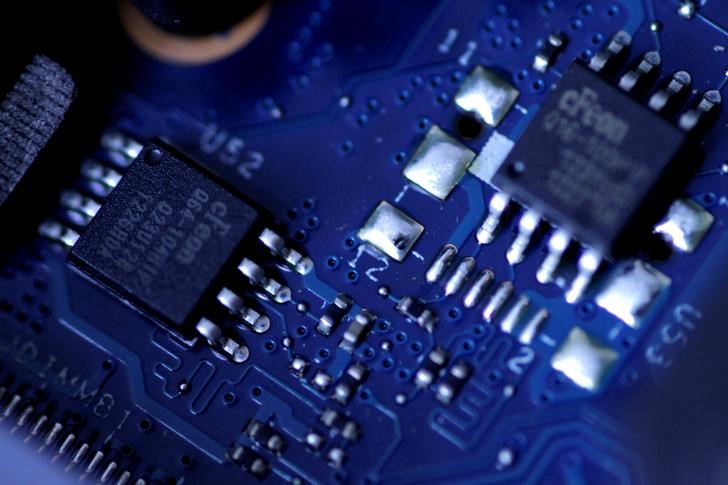By Karen Freifeld
(Reuters) - Industry groups are pushing back on proposed changes to U.S. export controls that would impact the sale of certain semiconductors and other technology to China, while highlighting the role chips play in addressing the COVID-19 pandemic.
In a letter sent on Monday, nine groups urged U.S. Commerce Secretary Wilbur Ross to allow public comment before putting the rules into effect to avoid unintended consequences.
The changes may "result in significant impacts to the semiconductor industry, its global supply chain, and the broader technology sector," said the letter, signed by the Semiconductor Industry Association and the National Foreign Trade Council, SEMI, and six other groups.
Noting the public health crisis, it added: "Semiconductors drive the functionality in advanced medical equipment used by health professionals to treat the public," and enable telework.
Reuters reported last week that senior U.S. officials agreed on new ways to control high-tech exports to China. The changes are aimed at preventing China from obtaining advanced U.S. technology for commercial purposes and diverting it to military use, sources told Reuters.
The previous week, Reuters also reported that the officials agreed to require foreign companies that use U.S. chipmaking equipment to obtain licenses before supplying certain chips to China's Huawei Technologies.
Ajit Manocha, president of SEMI, which represents the semiconductor and electronics manufacturing supply chain, sent another letter on Friday to President Donald Trump saying the change would harm U.S. exports of chipmaking equipment, which bring in over $20 billion a year.
The move would "serve as a disincentive for further investments and innovation in the U.S. and lead to the design-out of U.S. technology and components," Manocha wrote.
He also noted the potential to create uncertainty for supply chains "critical to fighting the COVID-19 pandemic."
Besides the equipment rule change, last month U.S. officials also decided to eliminate an exception that allows certain U.S. technology to be exported without a license to non-military entities for civilian use; force foreign companies re-exporting certain U.S. goods to China to seek approval not only from their own governments, but from the United States as well; and stop China's military from obtaining certain items without a license even if for civilian use.
In response, Chinese foreign ministry spokeswoman Hua Chunying last week urged Washington to stop the "slandering" and "do more for the cooperation between our two sides.”
Huawei also said Beijing could retaliate against U.S. measures to curb chip sales to the company by restricting sales of American products in China and by shifting to alternative suppliers in China and South Korea.
Neither the Commerce Department nor the White House immediately responded to requests for comment.
